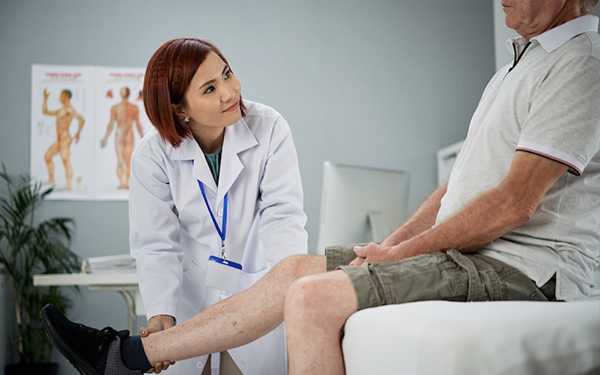Parkinson's is a neurodegenerative disease that affects the area of our brain that produces dopamine.
Generally, symptoms develop slowly. Although the disease is not fatal, severe complications can occur if the patient does not take the necessary precautions.
Damage to the substantia nigra region of the brain can lead to a range of side effects, including tremors and problems with walking and balance, which are associated with the disease. The cause of the disease is currently unknown, but many treatment options can help relieve symptoms and provide a better quality of life.
Early Warning Signs of Parkinson’s
Several early warning signs of Parkinson's disease are not a problem in themselves but should be taken seriously if multiple occur at the same time. The first symptom of Parkinson's disease is usually a slight tremor in the hand or jaw at rest. Tremors are regular during stressful situations and even after strenuous exercise, but if they occur when you are resting or calm, they are worrying. Another early warning sign is microscopic handwriting or H. Suppose your handwriting looks smaller and more cramped than usual. Like many other aspects of our bodies and health, our handwriting changes as we age, but the dramatic changes are usually quite noticeable.
Other early warning signs include loss of smell (regardless of whether there is a temporary blockage, such as a cold or flu), frequent difficulty sleeping, and problems moving or walking normally. Some stiffness is standard as you age, but if you suddenly feel that your movements have become highly stiff and clumsy for a short period, this could be an early warning sign of Parkinson's disease. Other symptoms include frequent constipation, a quiet or muffled voice, dizziness, and a pronounced hunched or hunched posture.
How is Parkinson's disease diagnosed?
If you have two or more of the early warning signs of Parkinson's disease, you should see your GP immediately.
There is no single definitive test that can confirm Parkinson's disease, as the disease is often complex to diagnose in its early stages. To confirm the diagnosis, the doctor usually needs to be sure that the patient's primary symptoms - resting tremor, slow movements and stiffness - have been present for a long time. He may ask you to perform specific basic movements in his exercises, such as tapping gently with your fingers and thumb or holding still while pulling back, for example, to check for balance problems. In most cases, he will make an educated guess that Parkinson's disease is present.
Once your doctor makes a diagnosis, he will confirm it by prescribing you a Parkinson's medication to see how you respond. If your symptoms subside, the diagnosis is confirmed. He may also order a brain scan to rule out other neurological conditions. If he is confident of his diagnosis, your doctor will refer you to a neurologist with expertise in this area, a movement disorder specialist.
How is Parkinson's disease treated?
Once a diagnosis is made, your primary care physician and neurologist will work together to develop a treatment plan to manage your symptoms and improve your quality of life. There are many different treatment options, depending on the severity of your symptoms. Unfortunately, there are currently no medications or treatments that can reverse the effects of the disease or completely cure it.
There are countless different medications used to treat the symptoms of Parkinson's disease. The most common is levodopa, developed in the 1960s and works by synthesizing dopamine in the brain. When taken alone, levodopa can cause nausea and vomiting, so it is often taken with carbidopa, which prevents these side effects and increases its effectiveness. Levodopa/carbidopa combinations are available in various dosage forms and strengths, including rapid-acting and extended-release options. In addition to levodopa/carbidopa tablets, there are many other prescription medications available for Parkinson's patients, including anticholinergics and amantadine, which reduce tremors and ease muscle contractions, and MAO-B inhibitors, which guarantee the effectiveness of levodopa medication.
If taken correctly, these medications have been shown to reduce the symptoms of Parkinson's significantly. If your symptoms respond to these medications, surgery may be an option. These implants can stimulate the brain's motor centres or ensure a steady flow of the drug levodopa/carbidopa into the small intestine. Deep brain stimulation, in particular, is considered the most significant advance in Parkinson's treatment since the 1960s and has been used for patients who suffer from severe tremors and movement disorders due to medication side effects.
What should you do?
If you have one or more symptoms of Parkinson's disease, you should discuss it with your doctor right away. They may not be able to confirm a diagnosis immediately, but they can start monitoring your symptoms. If you are under 50, it's easy to think that minor symptoms are insignificant, but taking them seriously is essential. In the United States, about 100,000 people have early Parkinson's disease.
With regular exercise, a healthy diet, and a suitable treatment plan, people with Parkinson's disease can lead meaningful, active lives.





